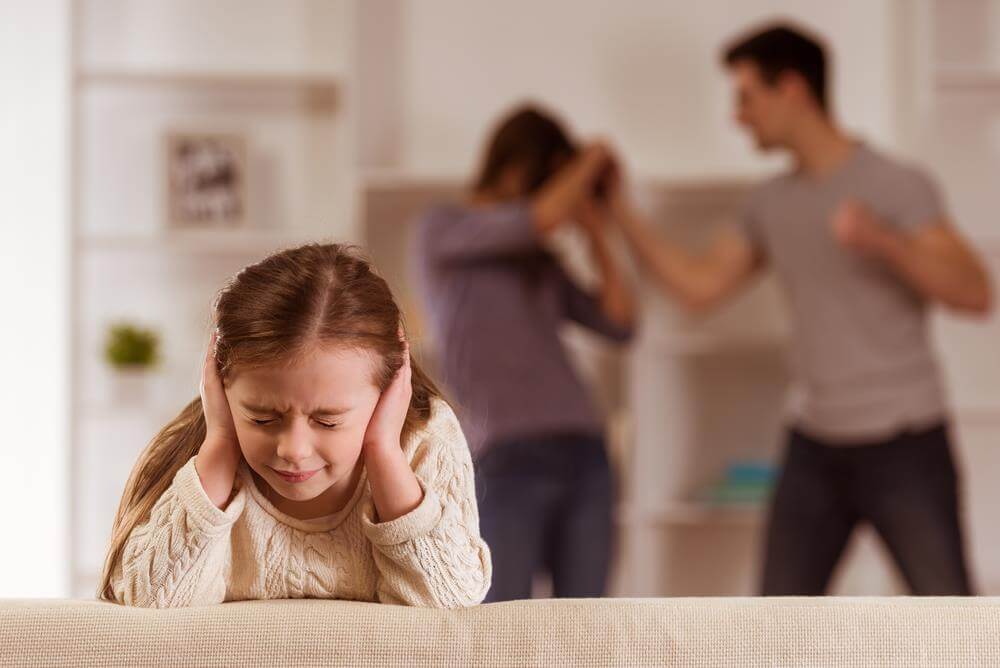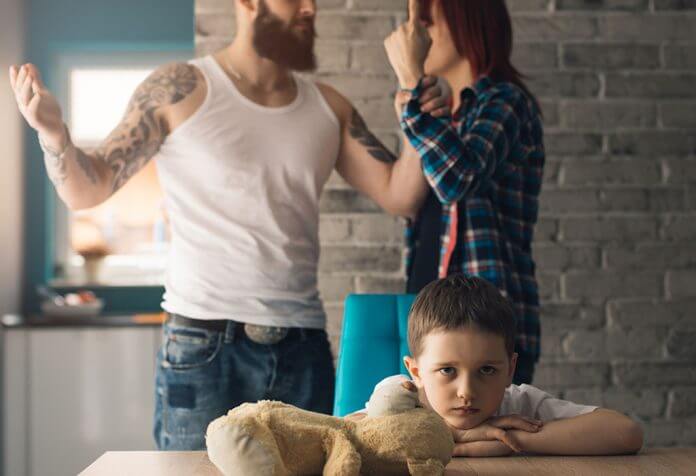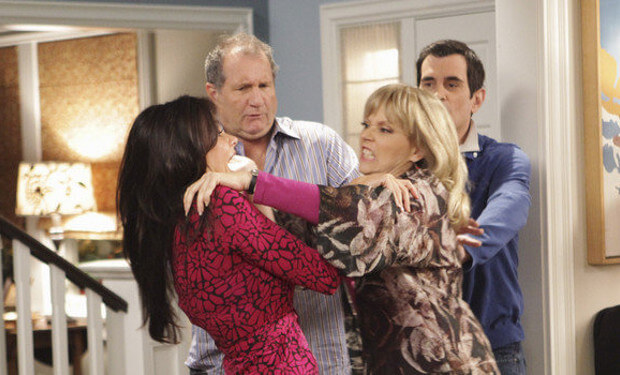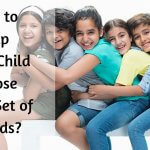Dysfunctional Family: How It Can Affect Your Child’s Development

A family is the single most important influence in a child’s life. It provides security, identity, and values to its members, regardless of their age. An individual learns about his sense of self and gains a foundation for the rest of his life. This foundation includes the family’s values which provide the basis for his own moral code. Therefore, the parenting style that parents adopt while raising children can have a huge impact on their development and growth.
Now, imagine the mental condition of a child, especially a toddler, brought up in an environment where problems such as parental negligence, rigidity, alcoholism or abuse exist in the family, disturbing its smooth functioning, leading to constant conflicts, fights, arguments, and tension.
Through this blog post, we share what a dysfunctional family is, the types, signs, effects of such family on children, and how to overcome these problems.
What is a dysfunctional family?
A family where conflict, neglect, and misbehaviour are constant and everlasting is dysfunctional. Modern psychology defines such families as those with anxious systems within them. There is a tremendous amount of emotional disturbance within the family members, and it sometimes means that it is coupled with child neglect and abuse. Children from dysfunctional families assume that this situation is normal as they are exposed to that environment regularly and do not know the different aspects of dealing with a dysfunctional family.
A functional family, on the other hand, encourage all family members to attain optimal growth and provide a safe space for emotional well-being.
Relationship between dysfunctional family members:
Ideally, children should grow up in an environment which helps them feel lovable and valuable. Such children grow up to be emotionally healthy and go on to have healthy relationships. However, when children grow up in an environment where their needs are curbed or they are constantly criticized and abused, they have low self-esteem and poor self-image. Thus, they grow up with the belief that such an arrangement is normal and accept it as a part of their life.

In a normal functional family, there is mutual respect between family members and everyone has each other’s back. For dysfunctional families, there is always tension and mistrust amongst the parents and children. Also, the authority of the parents in the family is often misguided. Even amongst adults, there is a certain level of mistrust and resentment. The members do not create a safe surrounding for a child to grow. Also, dysfunctional families do not value apology and do not allow for emotions to be expressed reasonably.
What Are The Reasons Of Dysfunctionality in Family?
Here are a few reasons which can create a hostile environment for children in the families:
1. Addiction:
When one or both parents in the family have an addiction to drugs, alcohol, or gambling, they do not care about their responsibilities, including those towards their family. For people with addictions, relationships and love for their children do not matter. They seem to be in a separate world, away from reality.
2. Violent behaviour:
The violent behavior of one or more members of the family breaks the foundation of that family. The others live in a fear of being physically and emotionally hurt and thus keep a distance from each other. Lack of interaction creates further distance between them.
3. Financial situation:
Money is one of the most important requirements for having a happy family. In scenarios where parents discontinue working or are unable to meet the financial requirements of the family, it leads to cracks and makes the family dysfunctional.
4. Authority:
The urge of a person to have control over the members of the family vitiates the atmosphere at home. They might unleash tyranny and the others do not have an option but to do what the person tells them to. Such behavior curtails their freedom and makes the members dislike each other.
5. Religious fundamentalism:
When the parents have strong religious beliefs, they might develop rigidity, thus enforcing their beliefs on children. Such actions restrict the environment at home for the kids to grow up into normal individuals.
The reasons and circumstances behind dysfunctionality vary from one family to another. And each situation might have varied effects on the child.

Signs That Show You Were Raised In A Dysfunctional Family?
1. You are a People Pleaser:
As a result of being abandoned, you fear disappointing people. You go to great lengths to please people. You grow with the belief that if you are nice to them, they won’t abandon you. So, you sacrifice your own needs to please others.
2. You Feel Guilty:
You feel guilty for no fault of yours and assume that it is your fault when others are upset. This is due to the mistaken belief that you are responsible for their feelings. You want to do anything to make others happy even if it is at your own cost.
3. You are a perfectionist:
As a child, you must have tried to meet the expectations of your family. You must have feared failure, and that makes you a perfectionist to the extent that you are obsessed with it.
4. You feel responsible for others:
You take up the responsibility of others while ignoring your needs. By doing all this, you lose your identity as you live in a codependent relationship.
5. You are harsh on yourself:
You judge yourself perhaps because you have been judged as a child.
6. You are tensed:
Even when everything is fine, you worry that something wrong is going to happen. There is no time to relax and when one problem ends, another one seems to crop up.
7. Have Poor Communication Skills:
You think of something but end up saying something vague because you do not know how to put your thoughts into words. This could probably be the result of your parents’ negligence towards your feelings as a child.
8. Anguish:
There is no hope for a better and peaceful life. You become pessimistic and feel there is something lacking in your life.
Having a couple of these signs does not mean that your family is dysfunctional. But if you can relate to most of these, then check if your family has the characteristics mentioned below of a dysfunctional family.
What Are The Common Characteristics of Dysfunctional Families?
Dysfunctional families have several characteristics in common which showcase the infelicitous dynamics between family members and their attitude towards each other. Here is what it is like to be in a dysfunctional family:
1. Lack of Communication:
Members of a dysfunctional family do not know how to openly communicate with one another and often have serious communication problems. They sweep issues under the carpet and never discuss them. They do not create a healthy conducive environment for discussion and often shout or have huge screaming fights. Family members do not listen to each other and usually resort to other ways of communication.
2. Lacking Empathy:
In a family which is dysfunctional, there is no empathy or a very little bit of it. It is to such an extent that the children feel bad about themselves. There is no unconditional love and issues are always subjected to behaviour corrections even when it’s not necessary, and the child has only made a small mistake. There is no room for error which creates a claustrophobic environment which leads to a constant fear of failure in children.
How can empathy help a person reach heights? Watch the video in our app!
3. Prone to Addiction:
Children who have witnessed their parents being addicted to drugs, smoking or alcohol often as adults end up using such substances to cope up with life.
4. Mental Issues:
Children who grow up watching adults around them suffering from mental illnesses and personality disorders often do not know how to cope or behave like adults. They also have a tendency to suffer from the same illnesses due to genetic predisposition.
5. Controlling Behaviour:
Sometimes when parents exert an extra amount of control in children’s life, stifling their ability to grow, they also end up not encouraging good behaviour. This kind of control can lead to self-doubt in children when it comes to their abilities and also creates trust issues.
6. Perfectionism:
Parents often end up putting pressure on their kids to perform and when that pressure becomes excessive, it leads to dysfunctional behaviour in them. Fear of failure is triggered and the children intend to grow up to be perfectionists.
7. Criticism:
Children growing up in a dysfunctional family are constantly criticized for their abilities or lack of them and are berated for all their actions. Parents are often condescending, patronizing and mean instilling a sense of helplessness and lack of belief in the child leading to low self-esteem.
8. Lack of independence and privacy:
Parents constantly invade a child’s privacy and smother them to ensure that they have zero independence when it comes to decisions in a dysfunctional family. They need to check at all times what the kids are doing and do not have honest communication or rules about it.
9. No emotional support:
There is no room for emotions or support for members of a dysfunctional family. There is no safe space provided for children to express their emotions clearly and in a positive manner. Kids often grow up lonely or isolated from their parents in this situation.
10. Violence and Abuse:
Parents of the dysfunctional family may resort to physical abuse and hurting of a child. There may be signs of verbal, physical, sexual or emotional abuse in children who come from dysfunctional families. Children observe this as normal and showcase the same behaviour as adults later.

What Are The Effects of Growing Up in A Dysfunctional Family?
Growing up in a dysfunctional family can largely have negative effects on the children. Mistrust, anxiety, despise and other negative emotions lead to a very insecure adult. Certain common behaviour patterns can be observed in people who come from a dysfunctional family which are:
The child has a bad image of self and suffers from a lack of self-confidence and self-esteem.
He/She finds it difficult to form healthy adult relationships and are shy or have a personality disorder.
He/She gets angry frequently and easily and prefer to be in isolation.
In studies, their performance is usually poor as they struggle to concentrate and focus.
They exhibit self-harm or self-destructive behaviour.
They are prone to addiction to alcohol, drugs or smoking.
The child can suffer from serious mental conditions such as depression, suicidal thoughts, anxiety, paranoia
Such people may lack discipline as they do not have a good role model to look up to while growing up and can become irresponsible or destructive.
They can also lose their childlike qualities of innocence as they have to take major responsibilities at an early age.
The scenario in a dysfunctional family might look bad but it is definitely reversible. You need to identify the dysfunctionality and address the problem to lead a healthy life.
How To Overcome The Negative Effect Of Dysfunctional Family?
It might seem challenging to overcome the effects of dysfunctional families, but fortunately, it is not impossible. All it takes is some effort and a lot of patience. Once you have identified if you are raising a dysfunctional family, the first step is to acknowledge and recognize behaviours and habits that are related to the dysfunctional baggage. There are ways to deal with it. Here is how:
1. Take Responsibility:
As a parent, you have a choice to overcome your circumstances and work towards creating a healthier emotional situation for your family. It is important to take responsibility for your actions and learn how to meet the expectations that are set for you by yourself and your family.
2. Seek Help:
Once you recognize your shortcomings, it is important to seek professional help or help in any form to deal with the issues from childhood. Dealing with low self-confidence can be a difficult thing, and it always helps to have the support of family and friends.
3. Get Creative:
Sometimes, conflicting situations can make way for creativity and expression. If you want to overcome the negative effect of a dysfunctional family, express yourself in a healthy way to your family and close ones. Share your thoughts and discuss how you can rebuild relationships.
4. Build Trust:
It is not easy to grow up in a place where trust is hard to come by amongst the adults you have seen around you. As a child, if you have seen your parents be mistrustful, there is a tendency that you will carry the same into your adulthood and even parenthood. With time and patience, learn to build trust amongst your closest ones.
5. Mend your relationships with the family:
Families who are dysfunctional are emotionally unstable, and as adults, you have the choice to build or rebuild a relationship that is broken. Start with baby steps and try and forgive and support your family wherever you can. No matter what kind of an upbringing you have had, there is always an opportunity as a parent to reflect and improve yourself and to have meaningful relationships with people!
Dysfunctional families are emotionally unstable, and thereby affect everyone at home, mostly children. If you want to establish a stronger bond of love, trust, and honesty in your family, take up responsibility, make the first move, and be ready to face hardships. There is a lot of help available to make positive changes in your family.
Besides getting professional help, there are numerous literature to guide you throughout your journey in form of parenting blogs and articles online and parenting books that provide parenting tips and skills you will require during this transformation process. They will also help you to set up discipline at home to ensure there is a change in behaviour. When others see your efforts, they might realize their mistake and support you in your endeavours.




